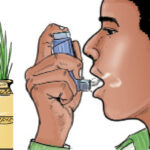A founding member and former Managing Director/Chief Operating Officer of Media Trust Limited, Alhaji Isiaq Ajibola, has called on the government to dedicate a portion of the health budget to the management of all matters concerning sickle cell disorder in the country.
Ajibola made the call Saturday in Abuja during the public presentation of the book, “I’m a Survivor. The Story of My Triumph over Sickle Cell Pains,” written by Malam Shehu Olaitan Mohammed.
- States differ over Buhari’s grazing routes directive
- After long silence, South East leaders condemn secessionist threats
He expressed worry that many Nigerians were still not bothered about the need to know their genotype before marriage despite the figure which revealed that over 40 million citizens suffered from sickle cell disorder in Nigeria.
“Government should look at the possibility of dedicating a certain amount of health budget to this area (sickle cell disorder). Awareness is very poor. Most people don’t know their genotype before marriage and this situation is still there,” he said.
Ajibola, who chaired the occasion, thanked God for the life of the author, who had remained diligent in his job in spite of the hurdles he scaled through, describing the book as a masterpiece for warriors of the sickle cell across the globe.
The vice-chairman, Daily Trust Foundation, also appealed for more support to the author who had decided to pursue a humanitarian cause.
In his welcome address, the author of the book, who was a former finance manager of Media Trust Limited, publishers of Daily Trust tiles, said the treatise was launched yesterday because it was recognised all over the world as World Sickle Cell Awareness Day.
Mohammed, who said donations and purchases would also go into various projects, promised to enrol 100 indigent sickle cell warriors on the National Health Insurance Scheme (NHIS) to allow them to have free access to health care.
In her lecture, Mrs Josephine Olunaike, a survivor like the author, called for the needed attention to stop what she called “avoidable ailment” in the country as Nigeria has the highest number of sickle cell sufferers in the world.

 Join Daily Trust WhatsApp Community For Quick Access To News and Happenings Around You.
Join Daily Trust WhatsApp Community For Quick Access To News and Happenings Around You.


